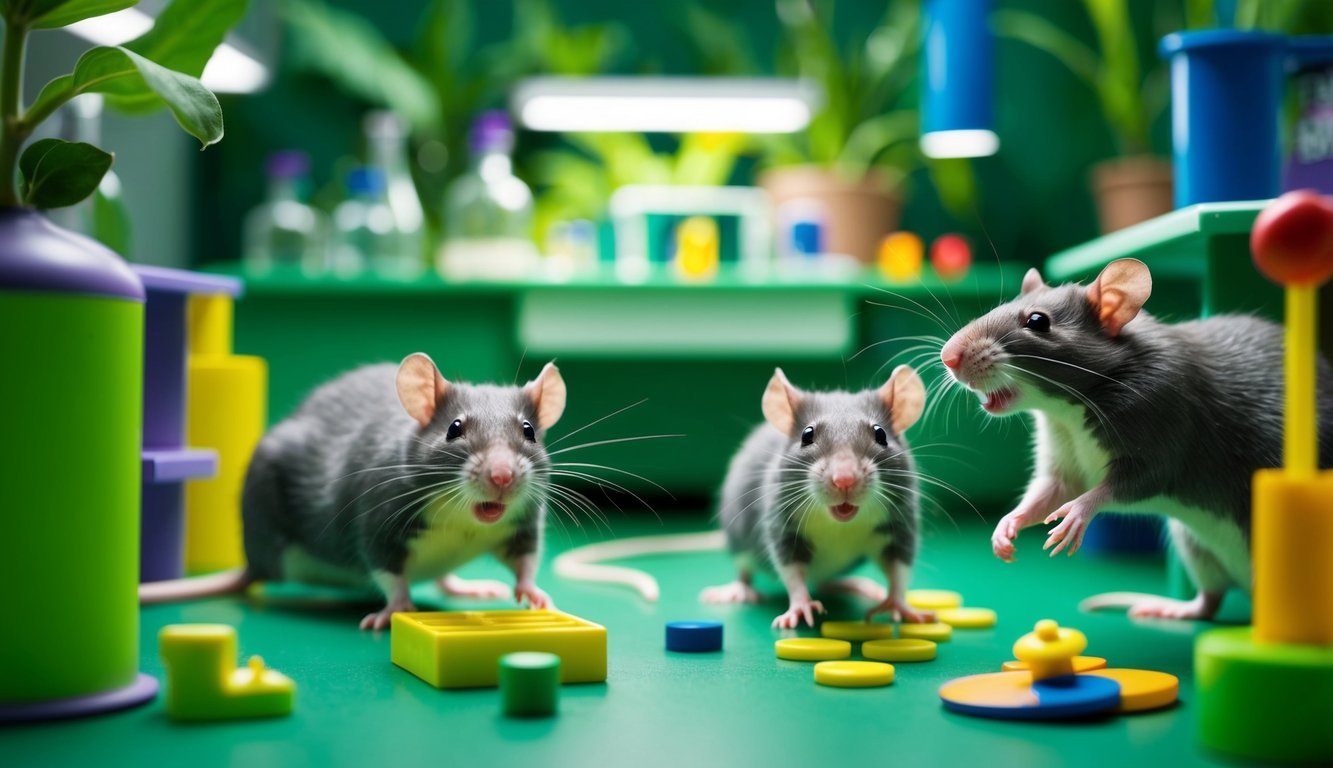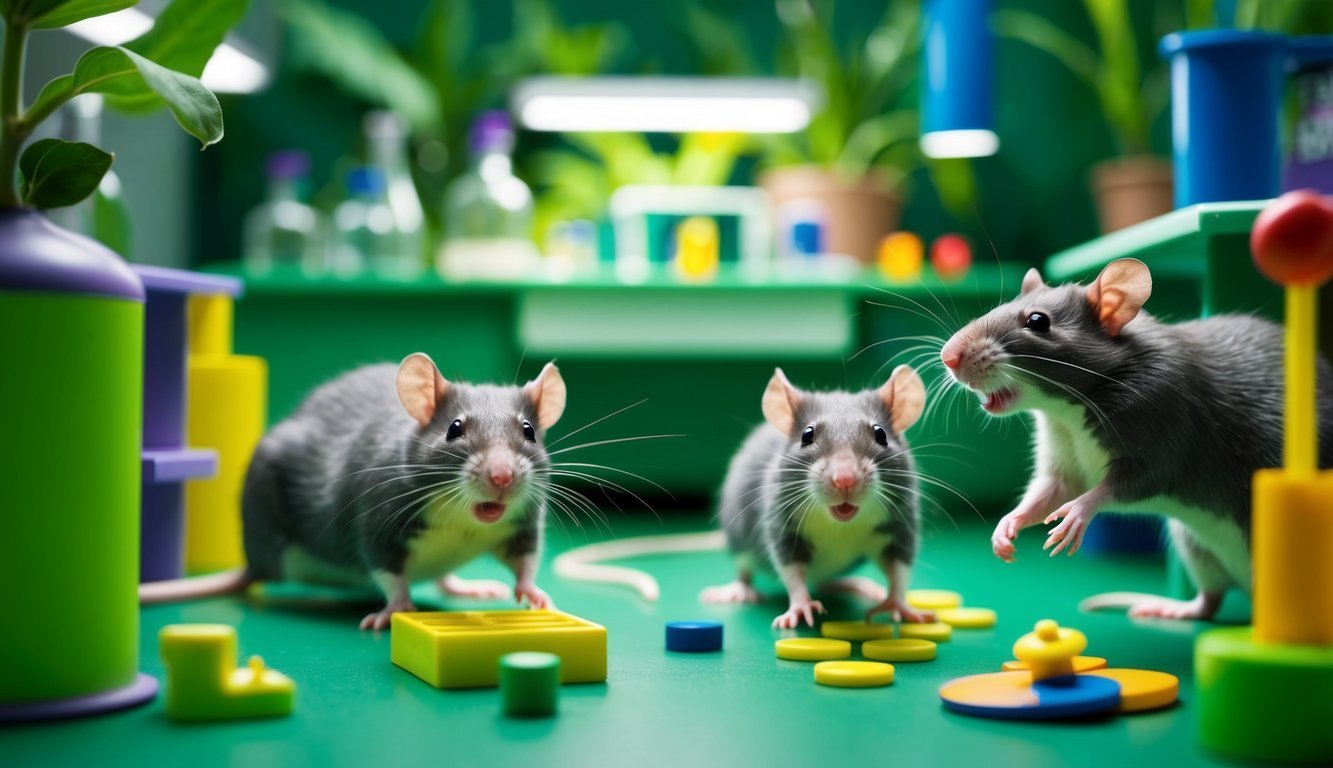
In a thought-provoking study published in
Translational Psychiatry, researchers have delved into the intriguing potential of psilocybin, a naturally occurring compound found in certain mushrooms, to elevate optimism and influence engagement with tasks— findings that could illuminate new avenues for treating depression. Utilizing advanced computational modeling techniques, the investigation revealed that rats given psilocybin displayed a notable and lasting enhancement in optimistic behavior, leading them to engage more actively with their surroundings.
Exploring the Impact of Psilocybin on Depression
Depression, characterized by withdrawal, negative mindsets, and a decline in motivation, can make it exceedingly difficult for people to engage in rewarding activities. While psilocybin has recently gained attention as a possible treatment for this complex condition, the specific mechanisms governing its effects remain shrouded in mystery. By applying controlled experimental conditions and animal models, the researchers sought to unravel how psilocybin impacts decision-making and nurtures a sense of optimism.
Understanding these underlying mechanisms could pave the way for more targeted treatments for depression. Unlike human trials, which can be influenced by participants’ expectations, research utilizing rats allows scientists to examine the pure pharmacological effects of psilocybin in a meticulously controlled environment.
As part of this undertaking, the research team focused on the enduring effects of psilocybin at a neural level. Their exploration aimed to clarify which people might benefit from this treatment and which may not, acknowledging that responses to psychedelic therapies can vary widely. The ultimate goal is to disentangle the complex interactions that give rise to these responses, ultimately refining therapeutic strategies.
Behavioral Assessments and Experimental Design
The study design incorporated behavioral assessments alongside an intricate computational model to analyze how psilocybin influenced the rats’ decision-making. A total of 22 female Sprague-Dawley rats were divided into two cohorts: one group received a single dose of psilocybin, while the control group was given a saline placebo.
Central to this investigation was a reversal learning task, designed to evaluate the rats’ adaptability in response to changing reward dynamics. The experimental setup involved a device featuring two nose-poke ports—successful poking of a designated port yielded a reward in the form of a sucrose pellet, while the incorrect choice resulted in nothing. After achieving ten consecutive correct responses, the reward would switch to the opposite port, challenging the rats to adjust their behavior accordingly.
This task unfolded over a continuous 14-day period, during which the rats were free to choose between engaging in the task or remaining inactive. Such a design ensured that motivation and engagement were assessed without the influence of external factors, like hunger, as they had unfiltered access to regular food.
To gain deeper insights into the cognitive underpinnings of the rats’ decisions, the research employed various computational models, including reinforcement learning and active inference models. These models were instrumental in evaluating metrics such as optimism bias, which measures how readily the rats updated their beliefs in light of rewards compared to losses, and loss aversion, indicating the extent to which they avoided losses versus pursuing rewards.
Findings and Future Directions
Findings from the study revealed striking behavioral differences between the psilocybin-treated rats and their control counterparts. The rats receiving psilocybin exhibited a marked increase in their engagement with the reversal learning task. They not only participated more frequently, but this enhanced engagement translated into a greater number of rewards accrued, particularly noticeable in the second week of testing. Interestingly, despite this spike in engagement, the psilocybin group also encountered a higher incidence of losses, suggesting a diminished sensitivity to negative outcomes.
Computational analyses identified two key mechanisms shaping this behavior. First, the psilocybin-treated rats displayed a pronounced optimism bias, indicating a tendency to adjust their expectations more readily following rewards than after losses. This inclination likely fostered a sense of hopefulness, encouraging ongoing participation in the task. Additionally, psilocybin appeared to reduce loss aversion in these rats, which diminished their sensitivity to the negative consequences of losses and sustained their motivation to engage despite setbacks.
The research team observed that these effects intensified over the course of the study. By the second week, the psilocybin group consistently outperformed the controls regarding task engagement and reward acquisition, supporting earlier research suggesting that the behavioral and neural impacts of psilocybin may peak days or weeks after administration.
Crucially, the observed increase in engagement was not correlated with heightened general activity levels or a decrease in anxiety-related behaviors, indicating that these effects were uniquely tied to decision-making processes relating to optimism and the pursuit of rewards.
Despite the promise of these results, the study is not without its limitations. Conducted on rats, the findings may not be directly translatable to people, whose decision-making processes are influenced by a myriad of complex factors, including emotional and social dynamics that are notoriously difficult to replicate in animal models.
With an eye toward future discoveries, the research team expressed enthusiasm about extending these findings to human studies. They see opportunities for refining timing and methods of data collection post-treatment, aiming to reveal even more about psilocybin’s capacity to foster optimism. Additionally, they are exploring other interventions that might yield similar uplifting outcomes, with aspirations of identifying a range of treatments that effectively combat depression by encouraging people to engage more meaningfully with the world around them.
“`
Study Details:
- Title: Psilocybin increases optimistic engagement over time: computational modelling of behaviour in rats
- Authors: Elizabeth L. Fisher, Ryan Smith, Kyna Conn, Andrew W. Corcoran, Laura K. Milton, Jakob Hohwy, and Claire J. Foldi
- Journal: Translational Psychiatry
- Publication Date: November 22, 2024
- DOI: 10.1038/s41398-024-03103-7
“`

 In a thought-provoking study published in Translational Psychiatry, researchers have delved into the intriguing potential of psilocybin, a naturally occurring compound found in certain mushrooms, to elevate optimism and influence engagement with tasks— findings that could illuminate new avenues for treating depression. Utilizing advanced computational modeling techniques, the investigation revealed that rats given psilocybin displayed a notable and lasting enhancement in optimistic behavior, leading them to engage more actively with their surroundings.
In a thought-provoking study published in Translational Psychiatry, researchers have delved into the intriguing potential of psilocybin, a naturally occurring compound found in certain mushrooms, to elevate optimism and influence engagement with tasks— findings that could illuminate new avenues for treating depression. Utilizing advanced computational modeling techniques, the investigation revealed that rats given psilocybin displayed a notable and lasting enhancement in optimistic behavior, leading them to engage more actively with their surroundings.